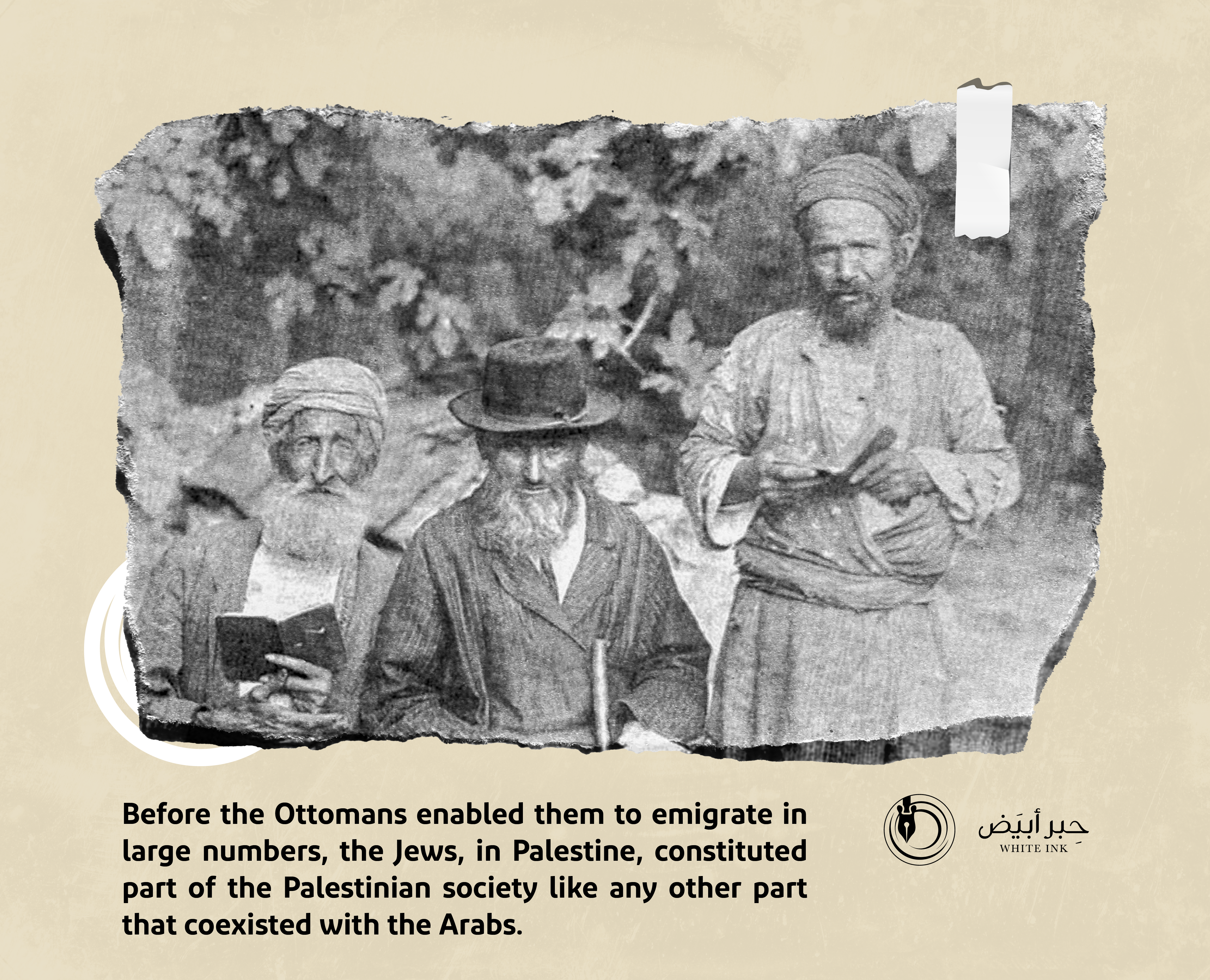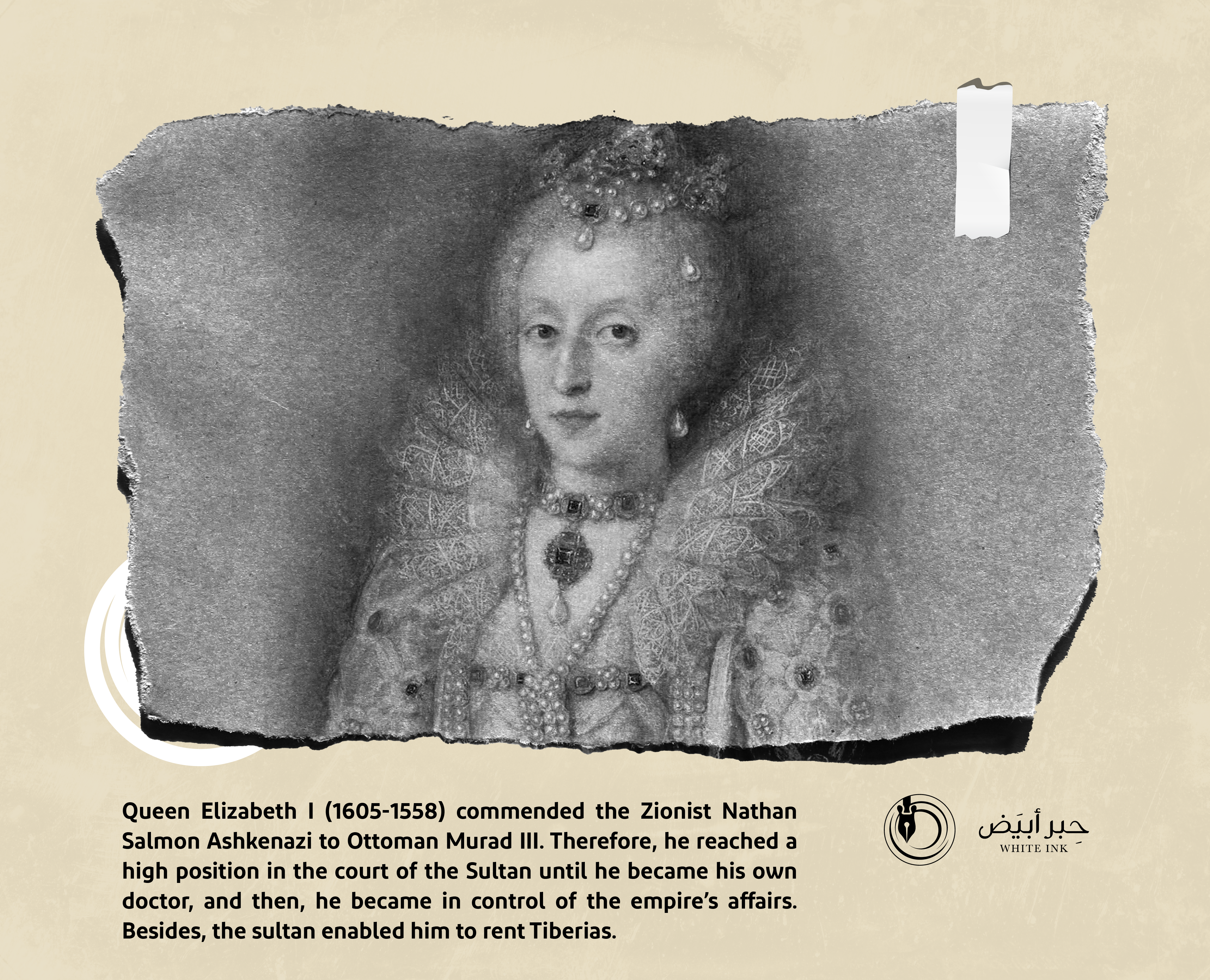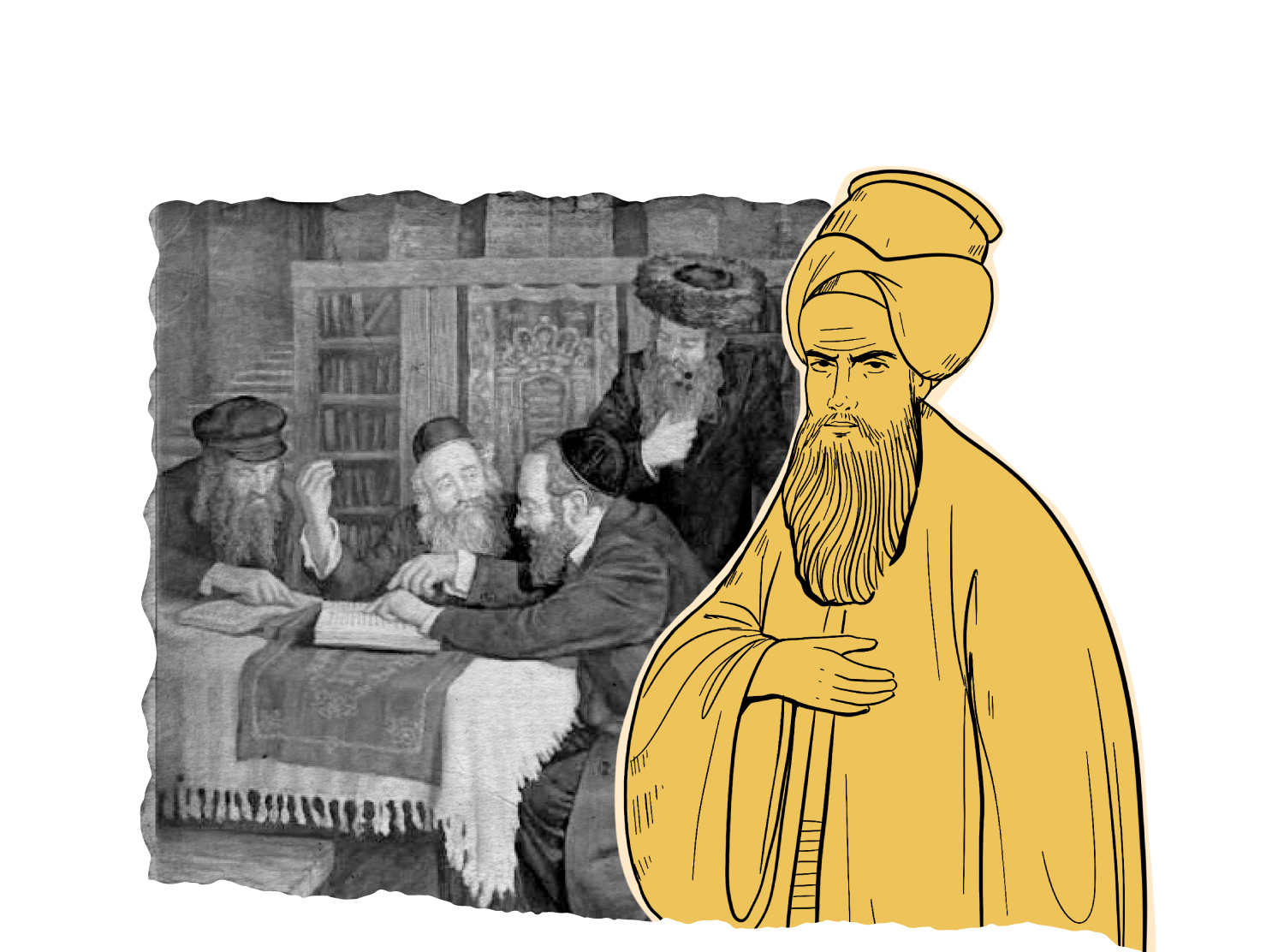
With the blessing of the Ottoman Sultans
The Zionist influence in the Ottoman Empire
Zionism’s relationship with the Ottoman Empire was not temporary, but rather a strategic alliance, with objectives paving the path for it to be able to destroy the Arab world, which was tattered due to centuries of ignorance and poverty enforced thereon by the Ottoman Empire; such alliance became a source that provides Turkish populism with force and economic strategy.
The last step, that lasted until the fall of the Ottoman Empire, was the alliance with the Zionists since the beginning of the Ottomans’ recognition of the Jewish religion as a sect, similar to what happened with the Orthodox Christians, and things developed furthermore as the Zionists managed to enter the royal palaces. Sultan Murad III was the first to bring a Jew to his palace when he appointed one of the Jews to be his doctor, also Mehmet the Conqueror allowed them to live in Istanbul and appointed a “Hakham Bashi” for the Jews and granted him authorities similar to that granted to the Christian Patriarch.
Things did not stop at this point, ever since the first moment, the Zionist Turks were granted a privilege, such as wearing their own dress code and to freely live as they desire. This made the Jewish communities able to live throughout the various stages of the Ottoman Empire, and to find a foothold to be allies and to become a key for their relationship with Europe.
However, this alliance took an ever-closer form, as the Turkish sultans began to choose Jewish Zionists as economic associates for their empire in work and trade; the most prominent evidence on that fact is the high position the Zionist doctor Nathan Salmon managed to assume in the court of Sultan Murad III, to the extent that prompted him to rent Tiberias from the Sultan for his son to carry on its reconstruction.
In addition, the influence of the Zionist Youssef Nasi allowed him to make an enormous fortune, which enabled him afterwards to assume the position of the Ottoman Sultan’s advisor, to manage the significant information through his network in Europe. Historical narrations provide that Nasi was the one who paved the way for the Turkish-English alliance against King Philip II of Spain. Historical sources also reveal that Queen Elizabeth I (1558-1605) wrote a letter to Sultan Murad III, recommending that he employ Ashkenazi as he is a “skillful and trustworthy man” who should be protected from enemies.
Zionism took over the commercial agreements and contracts of the Ottoman Empire with the major European countries.

Confidential reports executed by some ambassadors in Istanbul complete the picture of the Ottoman Empire’s abandonment of the Arab Land that it does not own to those who do not deserve. Such reports state that Nasi surpassed everyone during the reign of Sultan Selim II, to the extent that prompted the Venetian ambassador, “Tiopollo,” to say that: “The doctor controlled the mind of the Grand Vizier and he is aware of all the secrets of the Ottoman court
Things went too far later, when the Grand Vizier authorized Salmon Ashkenazi to conclude a peace treaty with Venice, and he was sent to Venice as an official Turkish representative, which flabbergasted the Europeans themselves. Surprisingly enough, Salmon was also assigned to conduct extremely complicated negotiations with Spain; such negotiations persisted during the period (1578 – 1586) and the outcome of which was a tentative peace between the two forces; as a result therein, the Ottoman Sultan granted the Island of Meltin to Youssef Nasi as a gift for his efforts.
Salmon provided his various services to the Aristocratic Turks and he also managed to induce the Sultan to favor a specific person over another, by taking advantage of his position with the sultan, for example, he managed to persuade the Sultan for the benefit of the Minister of Farhat Pasha by presenting an extremely precious dagger studded with precious jewels, which was given to him as a gift, thus he survived the wrath of the Sultan. In fact, arguably, the likes of Salmon and other Zionists allowed for penetration of the Ottoman administration, politics and economy at early period, and things stayed that way until the end of the nineteenth century AD.
Economically, in the sixteenth century, the collection of custom duties was managed by the Zionists. They also worked in maritime and commercial navigation, they achieved significant successes, and competed with the Venetians who had a strong fleet and ancient trade traditions.


- Ahmed Nouri Al-Naimi, Jews and the Ottoman Empire (Beirut: Dar Elbasheer, 1997).
- Irma Lvovna Fadeeva, History of the Jews in the Ottoman Empire, Translation: Anwar Mohammed Ibrahim (cairo: National Center for Translation, 2020).
- Hamilton Gib and another, Islamic society and the West, Translation: Abdul Majeed Al-Qaisi (Damascus: Dar Al Mada, 1997).
- Stanford Jk Shaw, Jews of the Ottoman Empire and the Turkish Republic (Cairo: Dar Elbasheer, 2015).
- Jaafar Hassan, Eldonmp between Judaism and Islam band, 3rd Ed (Beirut: Al Fajr Foundation, 1988).
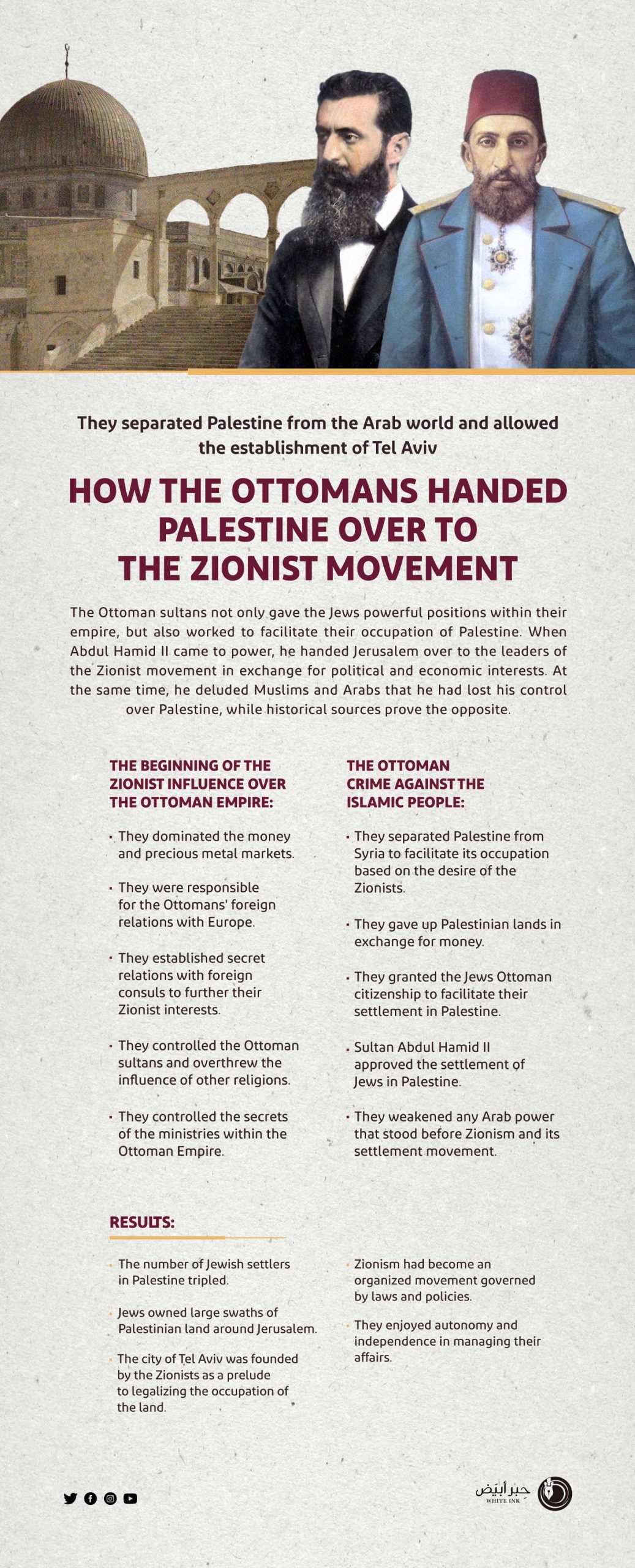
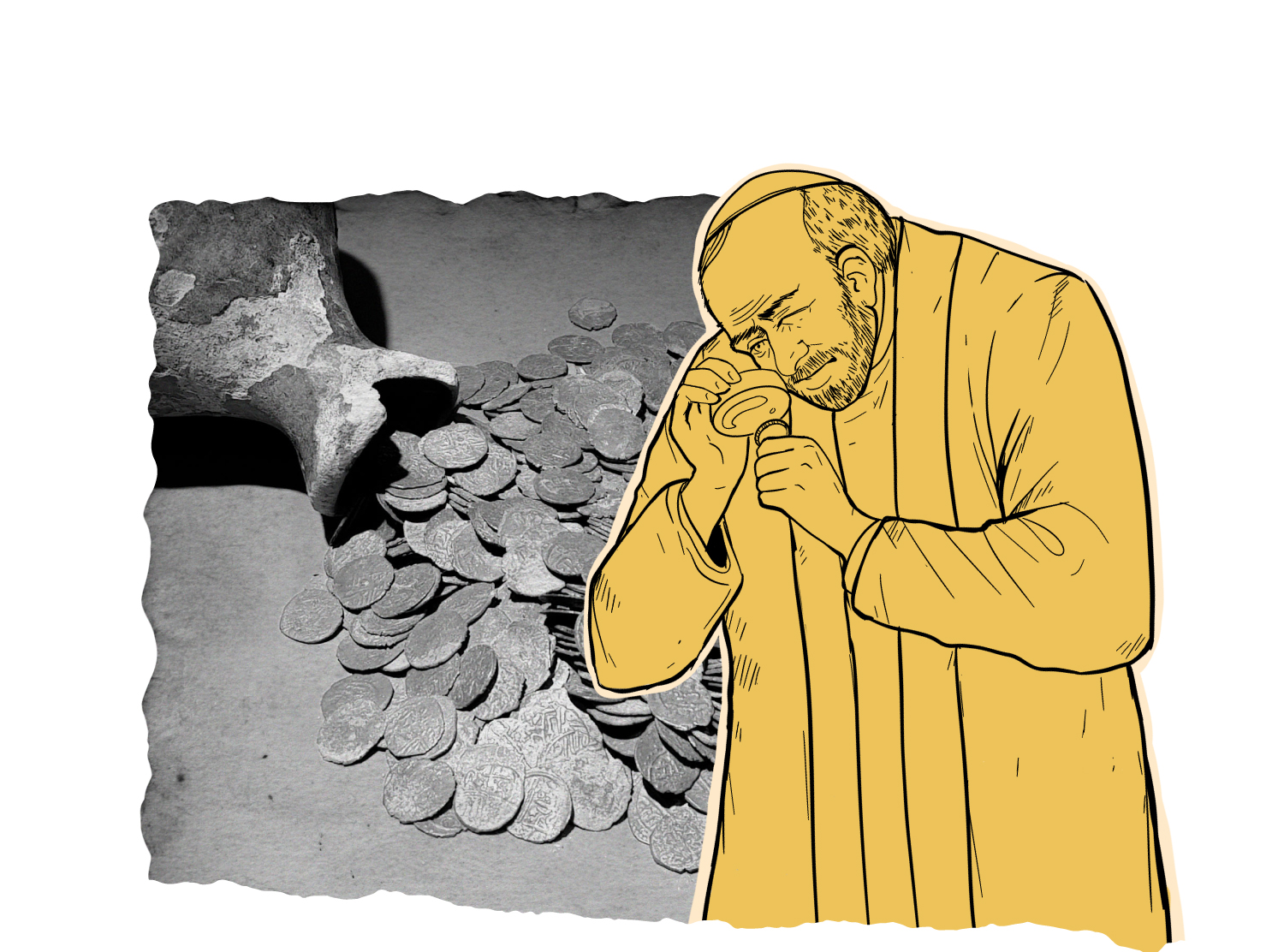
They Dominated the Markets of Money and Precious Metals
How Did Zionist Jews Penetrate the Influence Areas of Ottomans?
Iberian Peninsula (Al- Andalus) witnessed severe changes at the end of the 5th century. Spaniards and Portuguese were able to occupy Al- Andalus taking it from the domination of Muslims. This resulted in a series of persecutions that were particularly directed towards Muslims and Jews. Such swell of persecutions increased especially after Granada’s fall in (1492).
After the immigration of many Muslims who were known as Moriscos, in various parts of the Mediterranean; as well as the immigration of huge numbers of Jews who were known as Spanish Jews, Ottoman Empire received large numbers of those Jews, especially that most of them were either rich or with professional expertise.
We have a historical resource asserting the influx of Spanish Jews towards Ottoman Empire, and the welcome of Ottomans to settle those Jews in their lands. Samuel Osk, a Jew who had to convert to Catholicism but he secretly remained Jew, said to his brothers in Judaism, “freedom gates, here, in Ottoman Empire are open to you so that you can unreservedly practice your Jewish rites”.
In fact, the immigration of Jews started to Morocco at first. Notwithstanding, since (1517) immigrations increased towards the east, especially Egypt, Syria, Palestine, Istanbul and Asia Minor in general.
French historian, André Raymond, told us about the increasing economic role of Jews in Ottoman Arab states in spite of their small numbers compared to the numbers of original population. Jews were professional in the work of precious metals and foreign exchange business. In Cairo, for example, Haret Al- Yahood (Jewish Quarter) was located in the center of the city next to Al- Sagha (goldsmiths) Quarter.
Jews also used to work in the mint. They performed an important role with regard to foreign trade. They were specialized in exporting local products and importing European products. This was due to their mastery of foreign languages and their close European relationships with their Jewish peers in Europe. In addition, Jews were professionals in the affair of providing loans, especially to Janissaries and senior honorable figures. Thus, they were able to form close relationships with the senior gentlemen of Ottoman Empire.
Zionists borne in their mind economy and politics in Ottoman Empire.

Historical resources pointed out that there were problems and disputes between Jews and local population as a result of the increase of financial and administrative influence of Jews and the conflict in this regard. In Istanbul, for example, the famous doctor, Yaqoub Pasha, became a private doctor of the Sultan. As a result, the hostile of Ottoman court men was provoked against him.
In Arab Mashreq, there was a great clash as a result of the contest between local Jews and Christians over customs administration. In Egypt, Ali Bey Al- Kabir dealt a severe blow to Jewish community around the year of (1770 AD.) when he removed them from customs administration replacing them with Syrian Christian community.
In Tunisia, there was a separation between local Jews and Jews coming from Europe. In the 18th century, Jews of European origins separated from local Tunisian Jews, and established their own organization.
Turkish historian, Ahmed Aq Kunduz, justified the open gates of Ottoman Empire to Jewish immigrations saying that this was a continuation of Islamic state traditions with regard to treating Dhimmis. Actually, Ottoman Empire had clear pragmatic treatment in order to benefit from the wealth, economic and administrative experiences of Jews.


- André Raymond, Arab Cities in the Ottoman Period, translated by: Latif Farag (Cairo: Dar El- Fikr, 1991).
- Ahmed Aq Kunduz and Said Oztok, Uknown Ottoman Empire (Istanbul: Ottoman Researches Foundation, 2008).
- Ahmed Noury Al- Nuaimi, Jews and the Ottoman Empire (Beirut: Dar Al- Bashir, 1997).
- Irma Lvovna Vadiva, Jews in the Ottoman Empire Pages of History, translated by: Anwar Mohammed Ibrahim (Cairo: National Center for Translation, 2020).
- Hamilton Gibb et al. Islamic Society and the West, translated by: Abdul Majeed Al- Qaisi (Damascus: Dar Al Mada for Culture and Publishing, 1997).
- Stanford J. Shaw, The Jews of the Ottoman Empire and the Turkish Republic (Cairo: Dar Al- Bashir, 2015).
- Jaafar Hasan, Donmeh Sect between Judaism and Islam, ed. 3 (Beirut: Al- Fajr foundation, 1988).
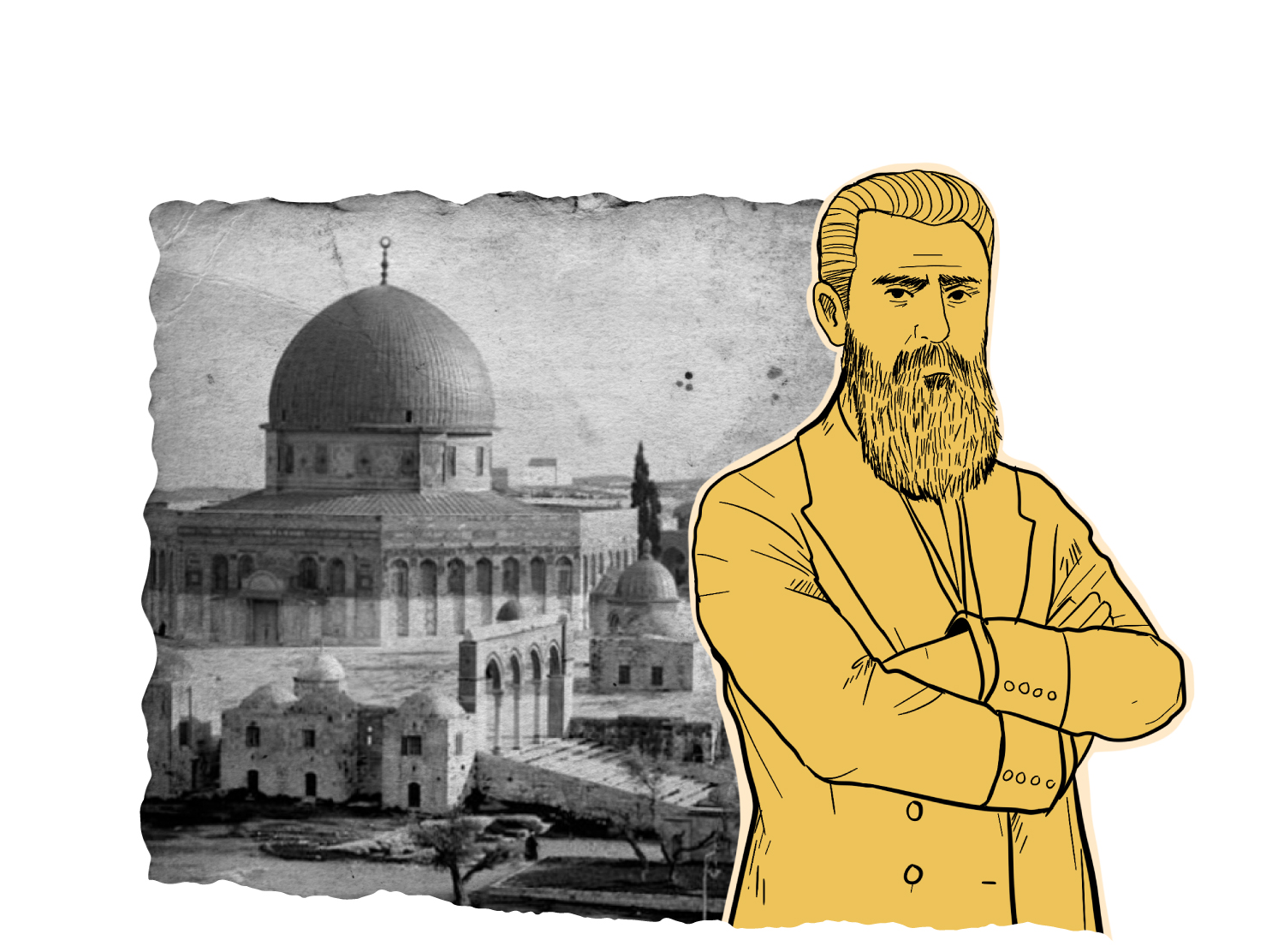
They changed land ownership laws and paved the way for settlement
Palestine... Was the Present of Ottomans to the World Zionist Movement
Ottoman propaganda exploited the complete ignorance by which the Arab World was forced throughout five centuries in order to enhance its historical forgery. Thus, they presented themselves as protectors of Islamic homelands, particularly Palestine. This has been believed by the wide Arab collective conscience, especially after promulgating the myth “that the main cause of the Ottoman Empire fall was their attitude towards the Jewish settlement in Palestine; in addition, Abdul Hamid II himself was a victim”.
While the historical truth supported by documents and events away from repulsive forgery was that the close relationship established by Turkish sultans with Zionist Movement, especially with its leader and founder Theodor Herzl, was more demonstrated and rational.
In the book of The Role of Abdul Hamid II Facilitating Zionist Hegemony Over Palestine (1876- 1909), Fadwa Nuseirat, Jordanian researcher, revealed the attitudes of Abdul Hamid II towards the Zionist Movement activity in Ottoman Sultanate, and its persistent endeavor of purchasing lands and building settlements in Palestine. It also tackled the way he actually dealt with this file; the extent to which he was serious and strict preventing the settlement extension in Palestine; and the extent of his ability to protect land and holy sites there.
This book demolished the so- called “historical postulate” which has been frequently promulgated, stating That Abdul Hamid II was too eager to prevent the establishment of the Zionist entity in Palestine. However, the truth reflects his real attitudes towards the Zionist project in Palestine, as they were completely the opposite; they rather contributed to its fall and loss.
Perhaps the most accurate description regarding the relationship between World Zionism and Ottoman Sultanate is that “it was not coincidental”. Its harbingers started since Turks received Jews in large numbers following their escape from Al- Andalus after its fall. They also received other immigrations from Eastern Europe and Russia, and made them settle with Turkish Jews in cities and several areas including Istanbul.
All this established a widely influential Jewish nationalism managed by Zionists inside the Ottoman Empire. It had political and economic impact that contributed later to implementing their plans with the help of the Sultanate to seize Palestine. The relationship between World Zionism and Ottoman Empire was not secret and Ottoman Empire did not fear or disregard it. Nevertheless, the propaganda released later tried to extinguish the flames caused by that relationship, especially the sale of Palestine by Ottomans for the benefit of the Zionist movement.
The leader of Zionist movement, Theodor Herzl, said in his memoirs: “Sultan Abdul Hamid promised us of an independent Jewish state, in return for paying his debts”, as Ottoman Empire that was described as the sick man was experiencing its worst states and its treasury was bankrupt. Sultan Abdul Hamid had Herzl as his only option to be able to save his crumbling sultanate. He initiated secret negotiations and correspondences between them until they reached a formulation titled money for Palestine. Such negotiations lasted for eight years (1896- 1903), eventually, it resulted in establishing the state of Israel at the expense of historical Palestine.
Theodor Herzl, the founder of Zionist Movement, revealed in his memoirs that Abdul Hamid II has agreed to sell Palestine for money.

The relationship developed between the two Turkish and Jewish nationalisms as they found themselves in the middle of Arab surroundings. Their interests required cooperation so that such surrounding would not overwhelm both of them. The Sultanate and its government bodies treated Zionist Jews as allies, while they treated Arabs as enemies. This was clear when it gave Jews privileges and influence, and drew them closer; however, it besieged and distrusted Arabs.
Dr. Ahmed Noury Al- Nuaimi confirmed that the interests and attempts of Zionist movement towards Ottoman Sultans in order to establish their state in Palestine does not date back to the emergence of Zionist movement in Basel conference in (1897); it is rather an earlier date, especially after such interests became clear since Russian policy followed a new strategy against Jews in (1882). This does not mean that Zionist Jews did not have endeavors before that date too. After they had settled in Ottoman Empire when they were expelled from Spain, their efforts were focused on controlling vital fields in Ottoman Empire after a group of them converted to Islam and were known, later, as Donmeh Jews.
The efforts of Zionist Jews seeking to establish their alleged state in Palestine were very clear and were not secret as claimed by Ottomans, especially after receiving large numbers of Russian Jews. The Sultan issued a group of firmans to facilitate their life, and directly gave them Ottoman nationality. This meant that they became as equal as the Sultanate nationals so that they had the same rights which others had. This was reflected on the case of Palestine when the spreading social disorder of purchasing lands from local Palestinians in favor of Jews started. They were rather registered in the Ottoman land departments while any opposing laws were removed. This contributed to establishing colonies.
Such welcome and indulgence to Zionist Jews prompted them to pressure Ottoman Sultans to allow the direct immigration from Europe to Palestine, which happened later on. Simultaneously, Ottoman Empire issued firmans in favor of Jews which they exploited to increase their immigration to Palestine and establish Zionist colonies.
Unfortunately, Zionist penetration was very deep within the Sultanate side scenes. Immigrant Jews aimed at bribing Ottoman officials, especially in the Mutasarrifate of Jerusalem, and they paid to change laws. Meanwhile, Ottomans, especially Abdul Hamid II, exerted huge efforts to enable Jews to possess the historical Palestine, the most important of which was changing land ownership law so that it would allow Jews to have land ownership after they were forbidden from such action.
Historical resources indicate that changing the law of foreign ownership of lands was a result of the Ottoman Empire debts to Europe. They allowed it in hope that they would obtain money so Jews lavished money on them. In addition, European churches took an interest in purchasing large areas of lands. They also started increasing land prices in the regions of Jerusalem, Jaffa and Haifa in order to achieve maximum profits.
Fadwa Nuseirat, the researcher, indicated that Abdul Hamid II issued in (1887) a firman to form the Mutasarrifate of Jerusalem as he turned it into an administrative entity independent from the state of Syria whose governor was directly connected to the Sultan in Istanbul. All this was to facilitate making decisions that support Zionist project although Jewish presence was previously increasing.
All this made the relationship between Zionist movement and Ottoman court actually fruitful particularly regarding Palestinian lands. The mere individual efforts and scattered futile homes turned into organized efforts governed by laws issued to facilitate settlement, and money lavished to protect settlements and enable them to stand still in the face of the Arab surroundings.
Numbers of Jews in Palestine tripled during the reign of Abdul Hamid II, as asserted by Fadwa Nuseirat, after their numbers had increased from 25 thousand in (1182) to 80 thousand in (1908). Their proportion to the population also multiplied from 5% to 11%. In (1909), they possessed more than 400 thousand dunams of the best and most fertile lands of Palestine; 275 thousand dunams of which were under the name of the famous Zionist Jew Rothschild who had a strong and personal friendship with Abdul Hamid. In that year, they established the city of Tel Aviv next to the city of Jaffa that later became Israel’s capital.
The real, not fake, history is the evidence that Ottomans were never good custodians of lands and Islamic holy places. Instead of returning lands to their owners, they handed them to another occupier. Turks have given away what they did not possess for the benefit of those who did not deserve. Perhaps we should remember here how Ottomans ceded, for trivial interests, Libya to Italians; Algeria to French; and finally, Palestine for the favor of the Zionist movement which has built its dream state, the state of Israel, with the support and backup of Ottoman Sultans.


- Ahmed Noury Al- Nuaimi, Jews and the Ottoman Empire (Beirut: Dar Al- Bashir, 1997).
- Amin Masoud, Land Ownership in the Mutasarrifate of Jerusalem (Milkiat Al- Aradi Fi Mutasarrifate Al- Kods) 1858- 1918 (Amman: Abdul Hamid Shoman Foundation, 1996).
- André Raymond, Arab Cities in the Ottoman Period, translated by: Latif Farag (Cairo: Dar El- Fikr, 1991).
- Irma Lvovna Vadiva, Jews in the Ottoman Empire Pages of History, translated by: Anwar Mohammed Ibrahim (Cairo: National Center for Translation, 2020).
- Hamilton Gibb et al. Islamic Society and the West, translated by: Abdul Majeed Al- Qaisi (Damascus: Dar Al Mada for Culture and Publishing, 1997).


